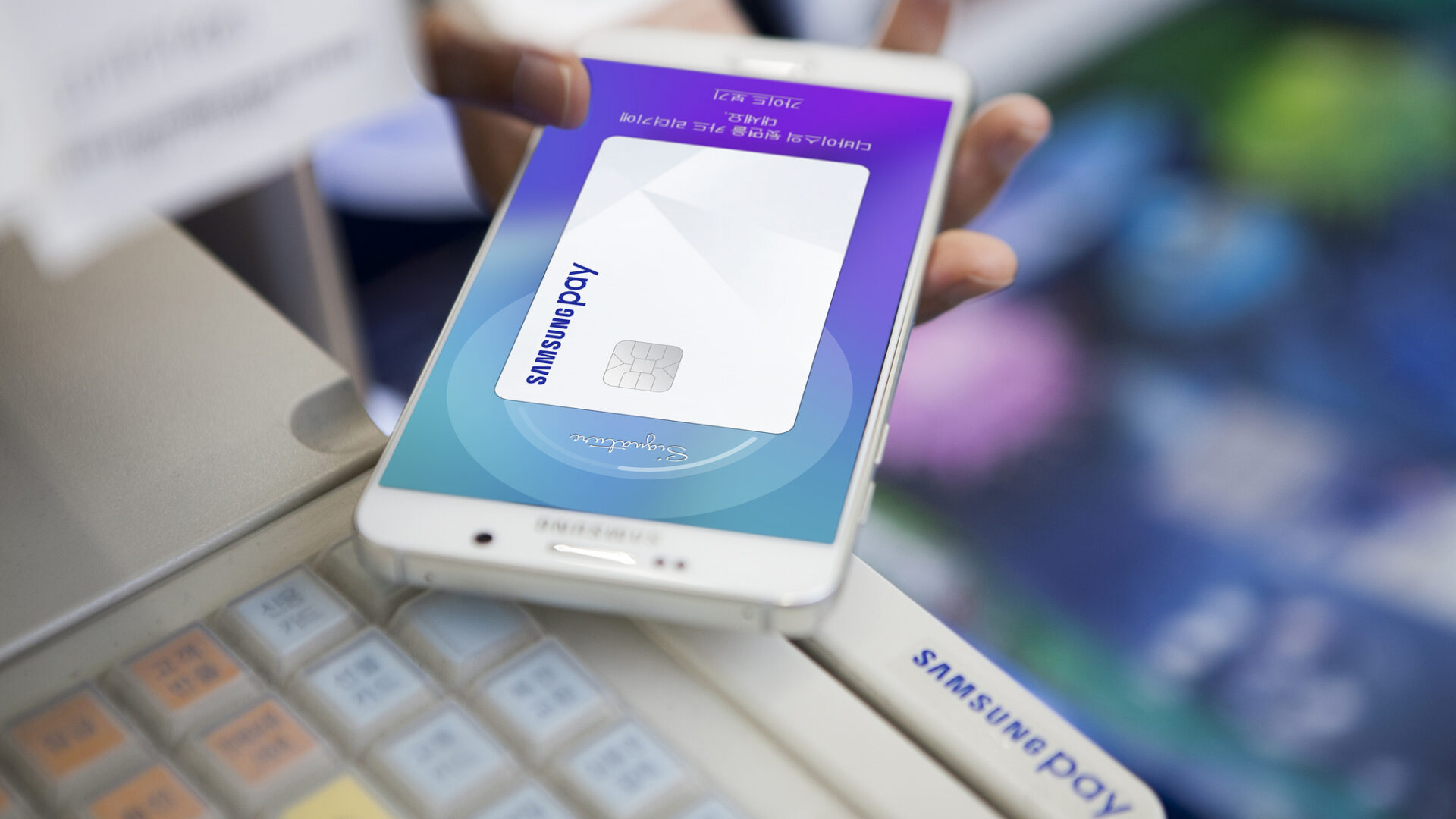It was back at the Mobile World Congress in 2015 that Samsung announced it was going to launch a new mobile payments service. The company confirmed that it would launch Samsung Pay in South Korea and the United States first before expanding it to other markets across the globe. Samsung Pay is only supported by a handful of the company's flagship smartphones and despite that it has seen significant growth over the past year that has seen it expand to countries like Russia, Canada, Singapore, Brazil, China and more. Supported devices include the Galaxy S6 and the Galaxy S7 series as well as the Galaxy Note 5. The Gear S3 smartwatch supports Samsung Pay too.
Samsung Pay was used to process more than $30 million accumulated transaction volume within the first month of its launch. This number surged to more than $850 million in Samsung's home country within eight months of launch. This goes to show the monumental growth that Samsung's mobile payment service has seen over the past several months. One big reason for the rapid adoption of this payment service is the ease of use since Samsung Pay supports both NFC and MST technologies.
Most mobile payment services rely on NFC or Near Field Communication technology only. They require merchants to acquire costly terminals before they can start accepting the payment service. Samsung Pay has support for Magnetic Secure Transmission as well which enables conventional card machines to accept this service. What this means is that users can pay with Samsung Pay almost anywhere they can pay using a credit or debit card. That's what makes Samsung Pay very easy to use because even though the merchant might not be aware of it, their conventional card machine lets them accept mobile payments from Samsung users.
Samsung has also been pushing its mobile payment service through promotions and incentives. New users are often provided gift cards when they make their first purchase using Samsung Pay. That's a great way to bring in new users who are apprehensive about trying the service. It has also been expanding relationships with banks and financial institutions to ensure that almost all card issuers are supported in a particular market.
The company is aware that the United States is a very lucrative market for its mobile payments service so it has been particularly working hard in the US. It now has support for more than 500 banks and financial institutions that represent over 80 percent of the country's debit and credit card market. It also offers features such as coupons and support for merchant gift cards in the United States.
Samsung has now taken a very wise step to set itself apart from the competition in the US. Earlier this week it announced the launch of the Samsung Rewards loyalty program for Samsung Pay. It's actually the first proprietary rewards program by a mobile payments service in the United States so this is a significant development. The benefits of this program are twofold. Not only does Samsung give new users more reasons to at least try Samsung Pay but it also compels existing users to use Samsung Pay more often for their purchases. So Samsung gets a steady stream of new users for its payment service while ensuring that existing users continue to generate transaction volumes to gain incentives. Like I said, wise step.
The Samsung Rewards program provides members with points on every purchase made using the mobile payments service. It also has loyalty tiers with point multipliers which means that customers can earn up to quadruple points depending on how frequently they use Samsung Pay. Points accumulated can then be redeemed for Samsung products, vouchers for the company's online store, gift cards to some of the best retailers in the country as well as Samsung Rewards Visa Prepaid Card value. Prize giveaways such as trips to Napa Valley and Las Vegas will also be offered to a few lucky members from time to time. The company has said that it's going to expand Samsung Rewards to its other products and services as well so that customers have more opportunities to earn points.
A CMB Consumer Pulse survey asked consumers in the United States what features would influence them to adopt a mobile payments service. The question was posed to consumers who were looking to adopt a mobile payments service and planning to make a purchase using it within the next six months. 44 percent of the respondents, a clear majority, said that they would consider a service that offered a rewards program.
Consumers use credit cards for a variety of reasons one of which is to earn reward points. Nevertheless, the 2016 US Consumer Payment Study conducted by Total System Services reveals that debit cards are still the preferred spending instrument for the majority of the consumers in the United States. This is where Samsung Pay pulls a fast one on its rivals.
Those who have their credit cards configured with Samsung Pay not only earn reward points from their card issuer but they earn Samsung Rewards points on top. Debit card customers don't earn points for their purchases but if they use the same card via Samsung Pay to make purchases anywhere they can pay by card, they earn Samsung Rewards points and thus get access to all of the incentives that their credit card counterparts get on Samsung Pay. This, I believe, is going to be one of the big drivers of growth for Samsung Pay in the United States.
With this move Samsung has left the competition far behind. A dedicated rewards program gives users more reasons to keep using Samsung Pay and it will surely entice holdouts to get on board as well. It's a win-win for Samsung as the rewards program helps the company set its service apart from the competition. The program is also going to make users want to incorporate Samsung Pay into their spending routines as they will begin thinking about dollars and points. The more money they spend using Samsung Pay the more points they earn. It's that simple. It's a strategy that has worked for credit card issuers for decades and it's going to work spectacularly well for Samsung Pay as well.
The Samsung Rewards program has only been launched in the United States for now but there's no doubt in my mind that eventually it's going to be rolled out in other markets where Samsung Pay has already gone live. It would be a mistake not to do so. Samsung has got itself in a good position here to leap ahead of the competition and it's surely going to make the most of it.









